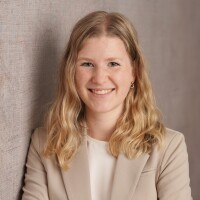Freunberger Group
Materials Electrochemistry
Life uses electron transfer reactions to, e.g., store or retrieve energy and to produce useful chemicals and materials. The Freunberger group works on electrochemical materials sciences with broadly similar goals.
The group’s primary research interest lies in the fundamental science of electron and ion conducting and redox active materials (inorganic, organic and polymeric) as well as their mutual interactions in the working environment of electrochemical devices, particularly, energy storage devices such as rechargeable batteries. The results of this fundamental research find use in clean, efficient and sustainable energy sources. The foundations of the group’s research are (i) the synthesis of new conducting and redox active materials and a fundamental understanding of charge-carrier transport and electrochemical reactions, (ii) advanced physico‐chemical and spectroscopic investigations to understand the mutual behavior of the materials in their working environment as well as surface and interface processes, and (iii) the application in the electrochemical device that is a complex electrochemical reactor.
Team
Current Projects
Oxygen redox chemistry and singlet oxygen | Sulphur electrochemistry | Organic electrode materials | Non-aqueous electrolytes and Interphases | Organic mixed conductors | Electrosynthesis | Operando spectroscopy
Publications
Dutta P, Von Mentlen JM, Mondal S, Kostoglou N, Wilts BD, Freunberger SA, Zickler GA, Prehal C. 2025. Bridging solution and solid-state mechanism: Confined quasi-solid-state conversion in Li–S batteries. ACS Energy Letters. 10, 5722–5732. View
Mondal S, Nguyen HTK, Hauschild R, Freunberger SA. 2025. Marcus kinetics control singlet and triplet oxygen evolving from superoxide. Nature. 646(8085), 601–605. View
Mondal S, Freunberger SA. 2024. Catalysing rate and capacity. Nature Catalysis. 7(7), 759–760. View
Jethwa RB, Mondal S, Pant B, Freunberger SA. 2024. To DISP or not? The far‐reaching reaction mechanisms underpinning Lithium‐air batteries. Angewandte Chemie International Edition. 63(28), e202316476. View
Archer LA, Bruce PG, Calvo EJ, Dewar D, Ellison JHJ, Freunberger SA, Gao X, Hardwick LJ, Horwitz G, Janek J, Johnson LR, Jordan JW, Matsuda S, Menkin S, Mondal S, Qiu Q, Samarakoon T, Temprano I, Uosaki K, Vailaya G, Wachsman ED, Wu Y, Ye S. 2024. Towards practical metal–oxygen batteries: General discussion. Faraday Discussions. 248, 392–411. View
ReX-Link: Stefan Freunberger
Career
Since 2025 Professor, Institute of Science and Technology Austria (ISTA)
2020-2025 Assistant Professor, Institute of Science and Technology Austria (ISTA)
2012-2020 Researcher and Group leader, TU Graz, Austria
2014 Visiting Professor, University of Montpellier, France
2008-2012 Postdoc and Early career fellow, University of St Andrews, UK
2004 Visiting Ph.D. student, University of Victoria, Canada
2003-2007 Ph.D., ETH Zürich, Switzerland
1997-2002, M.Sc., TU Vienna, Austria
Selected Distinctions
2023 Lower Austrian Science Award
2023 FWF Clusters of Excellence – Materials for Energy Conversion and Storage (“MECS”)
2021 Krainer Memorial Award
2018 Tajima Prize of The International Society of Electrochemistry
2017 Elected member of the Young Academy of the Austrian Academy of Sciences
2014 ERC Starting Grant
2014 Styrian Promotion Award for Science and Research
2014 La Chaire TOTAL de la Fondation Balard “Chimie et énergies durables”
2013 Supramaniam Srinivasan Young Investigator Award of The Electrochemical Society
2012 Science Award Electrochemistry by BASF/Volkswagen Finalist
2011 EPSRC early career fellowship
Additional Information
Download CV
View group website
Cluster of Excellence – MECS
Physics & Beyond at ISTA
Chemistry Colloquia website















